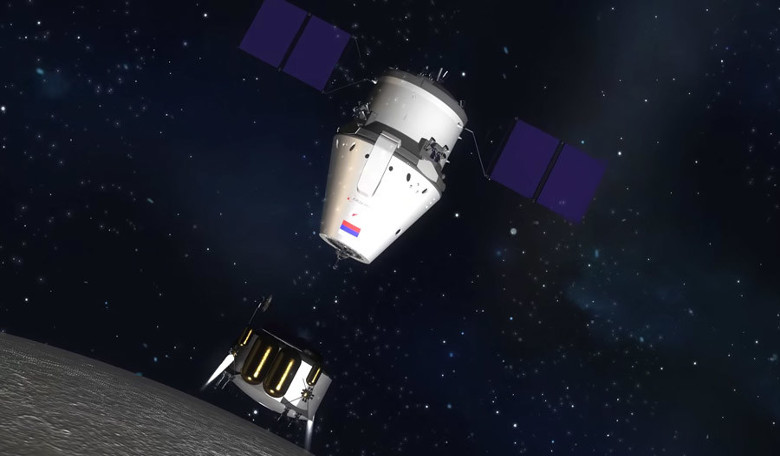Russian space launch operator Glavkosmos announced that this autumn, Russia and China will sign a space cooperation program that will see both countries participate in joint ventures, which includes exploring the Moon.
Glavkosmos, which is a part of Russian state space corporation ROSCOSMOS said that between 2018 – 2022, the two space-faring nations would look to work together in areas such as space vehicles and ground infrastructure, the exploration of the Moon and outer space, along with hardware components and materials.
"Work is nearing completion with the direct role of Glavkosmos to draw up a program of Russian-Chinese space cooperation for 2018-2022, which should be signed in the autumn of 2017," the company said.
Along with working with Chinese commercial partners regarding experiments aboard the International Space Station, Glavkosmos and China are also currently aiming to make their GLONASS and BeiDou navigation satellite systems mutually compatible and have plans to install adjusting ground-based stations in their respected partners country.
China is not the only international partner that Glavkosmos are hoping to seek deals with, as the agency looks to the BRICS nations (Brazil, Russia, India, China and South Africa) with plans to create a unified system to remotely sense Earth. Glavkosmos is already in discussion with Brazil for a tender for the delivery of space images to this emerging and developing economy.
Andrei Ionin, a member of the Russian Academy of Cosmonautics said that in light of western sanctions imposed on Russia, that the country needs to look more actively for international partners to develop space projects with. Along with BRIC nations, new potential partners could include Indonesia, the UAE, Vietnam, and Iran amongst others.
“Building international partnership is, perhaps, the main strategic task for the entire Russian cosmonautics today. This is because the technological revolution, first of all, in micro-electronics, has made it possible from the viewpoint of investments the creation of space systems consisting of dozens and even hundreds of Earth remote sensing or communications satellites whose commercial success requires work on the markets, and also considering that the next stage of piloted flights is related to movement outside the bounds of the near-Earth space, which will require a sharp increase in expenditures on outer space," said Ionin to the Russian News Agency, TASS.











